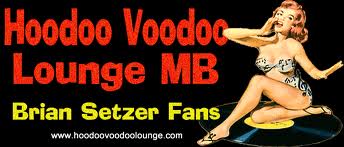With Chuck Berry, Little Richard, Elvis Presley, Fats Domino and Jerry Lee Lewis, Diddley (born Ellas Otha Bates) was one of music’s principal architects in the mid-1950s. The guitarist-singer-songwriter scored major pop hits with Bo Diddley and I’m a Man in 1955 and Say Man (1959) and made an almost incalculable impact on rock from the
Fifties onward. His music influenced artists working in such disparate styles as rockabilly, British Invasion pop, surf, psychedelic, hip-hop and punk rock.
Diddley is most often cited for his signature Bo Diddley beat, a syncopated 5/4 pattern similar to the West African-derived hambone rhythm or Shave and a haircut two-bits couplet. Over the ears, Diddley variously claimed to have adapted the beat from music he heard in church, from trying to play the Gene Autry song Jingle Jangle and from attempting to play his guitar like a drum.
Bo Diddley was born Ellas Otha Bates, Dec. 30, 1928, in McComb, Mississippi. He was raised by his mother’s cousin, Gussie McDaniel, with whom he moved to Chicago at the age of seven and whose surname he took, becoming Ellas McDaniel. Sources differ on where the stage name Bo Diddley originated, but McDaniel was using it professionally by
1954, when he recorded I’m a Man and his namesake song at Chess Records’ studios.
Issued as a single, Bo Diddley topped Billboard’s R&B Singles chart in 1955 (its flipside, I’m a Man, charted for 11 weeks in its own right) and was followed by Top-20 hits Diddley Daddy, Pretty Thing, I’m Sorry, Crackin’ Up and Say Man.
He cut 11 albums for Chess between 1958 and 1963, a number of which are now highly collectable.
Diddley is survived by his children, Evelyn Kelly, Ellas A. McDaniel, Tammi D. McDaniel and Terri Lynn McDaniel, as well as 15 grandchildren, 15 great-grandchildren and three great-great-grandchildren.
Private and public services are planned for this weekend.

